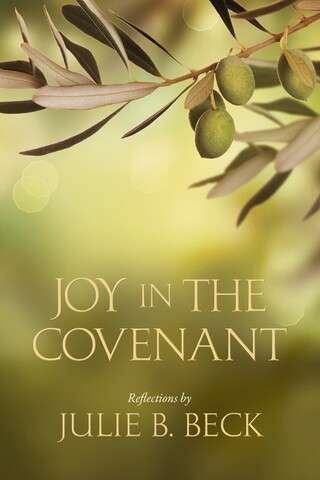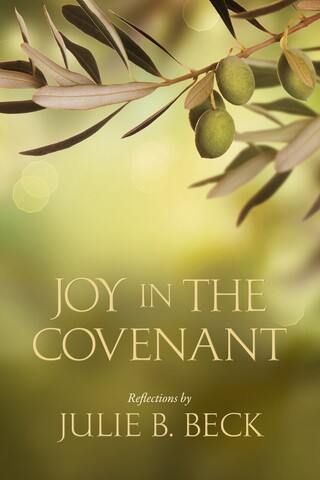The following is part of a transcript for the Deseret News podcast "Therefor, what?" Listen to the podcast below or view the full transcript on deseretnews.com.
BM: I'm going to dive right into the book portion. It's broken into three segments, which I just love: identity, purpose, and joyful living. And starting with identity, because I do think that's something that a lot of people struggle with today, really getting that connection, and you start this section, you share a lot of your experiences from down in Brazil. So tell us a little bit about that
JB: Our identity really is an eternal identity, but we live in a world that proliferates identities. All you have to do is look at teenagers. Go to your local junior high, you'll find the segmentation of identity and that's an age group that's trying to find out who they are. And often it's by pairing with someone else who they think they are alike. But for us as people, as we grow older, we should come to know that we are an eternal person, that we are part of Heavenly Father's family, we have that coverage in our life. It's the umbrella under which we live. To me, that gives me great confidence. It doesn't mean I can't be an individual, that I don't have my own character traits and personality, I can't change my hair color or things like that. But to know at my core, who I am, what my purpose is, what my work is, is very, very important. It provides the context for dealing with the life experience I have. . . .
BM: I think many people struggle with identity as they go through life's transitions, whether that's transitioning, you know, pre-mission life, during the mission, after the mission, married, as you enter those different phases. Often, I do think that raises questions in terms of our identity.
JB: People think life is static, and that we are one person forever. But life is a series of transitions from birth. As you watch newborns transition and become somebody else. It happens over and over and over again. I don't know why we're not better at it. I've transitioned many, many times in my life. And I think, now why am I having to learn this again? Because life is nothing but a series of transitions. That's why it's so important to know and anchor ourselves in more of an eternal identity and purpose and work. When we know our center, our circumstances can change. You can go from being single to married, that changes identity, right? Some people go from married to being single, again, for a number of reasons. That changes identity. Becoming a parent changes your identity, having children leave changes your identity. The transitions of young people. If you don't know who you are, at your core, and what that eternal identity is, then the fluctuations of life really can throw you off. So a lot of these identities, so-called, are really just life changing seasons. Seasons in our life. There was a time in college when all the boys wore the plaid trousers.
BM: We hope that doesn't come around very often. But it seems to keep coming back.
JB: And the girls did too. I have pictures to prove it. But we don't wear those anymore. I was still essentially the same person. But I was meeting with and associating with different people. And we stretch ourselves in that regard.
BM: Yeah, fascinating. So you talk about those anchors being critical. What are some of the other things that you've learned that are helpful in those transitions, in terms of keeping your identity. As you've gone through some of those transitions, what are some of the things that have been helpful to you, in keeping locked into that divine identity?
JB: What's helpful to me is to make this about myself and the Lord. Sometimes we get dependent on another person, it could be a spouse or a friend, and we say, "I identify with that," and we lean against each other, but I am more secure when my identity is focused on who I am with regards to the Lord, Who does he think I am? And am I fulfilling that desire he has for me. Am I doing my best with regard to him? If I am, I know that I'm square with him, and I can be square with anybody else and with myself. Otherwise, I can be deceiving myself. I know I can't deceive the Lord. . . .
BM: When the Prophet was in Montevideo, last week, he was asked about leaving behind his profession as a world-renowned heart surgeon when he was called to be an apostle. And he didn't pause for a second. He said, I walked through the door into a new room, and I closed the door behind me. So he was already moving forward. He, you know, he put his profession and his medical career behind him as he stepped into that new room, and he's always bounding forward. He has endless energy. I don't know gravity is applicable to the Prophet these days.
JB: Well, he has learned how to battle it by moving. And he keeps that — he's a life force now that wants to keep moving. I love that example. We have to be that way. Sometimes people retire, for instance, and they say, well, I've stopped, I've done that. But I don't think we're finished growing until we're finished. So that's the battle against inertia. It's more comfortable. It's easier just to sit, we get tired, we get battered. We get bruised, but stopping is not the best option.
BM: Yeah. And so often, don't you find that often we we run out of energy before we run out of opportunity, especially when it comes to fulfilling our potential?
JB: Yes, we do. It's because we're mortal. We, unless you're President Nelson, you don't have limitless energy. We do get tired. But I love the concept of getting up every day. I love what Joseph Smith taught in the "Lectures on Faith." That faith is a principle of action, and just getting up every day is a demonstration of faith. I love what my mother taught me when I was young, that your morning is all about 1-2-3-4, that one is roll out of bed onto your knees, two his reach up and pull your covers to make your bed. That is symbolic. That means you aren't getting back in. You've closed that part of your day. And now you have a different part. Three, grab your scriptures and open them up. Read something quick in the scriptures. Four, get dressed. She felt like you should do that in the first few minutes of your day. 1-2-3-4. And I found it to be very symbolic and faith-promoting that, OK, I'm started. I don't have to make that decision again, and whether to get up, whether to get dressed, whether to get going. . . .
BM: In our last segment of the show we always get to the Therefore, What? So as people who have listened to this podcast, as people read the book, what do you hope they take away? What do you hope they think different? What do you hope they do different as a result of this great book?
JB: I hope that they will do as I did, and ponder more deeply on their identity of who they are. What does it mean to be a member of the House of Israel? What is that identity, how can I fulfill and enhance that in my life? I hope that they will feel that there is a purpose behind that identity, that there is a great work to be done, that they're needed. The Lord knows them, He knows their capacity, He knows their weakness and He will bless and help them in that process. This is all part of the Atonement of Christ and knowing him and getting that help that is promised us. So I hope that is what they'll take away, that through their real life experiences they can know who they are and why they're here and what they're supposed to be doing. And take away strengthened purpose in working with the Lord to become who he wants them to become, and helping him in his great harvest of souls in this magnificent time.
Get more powerful insights fromSister Julie B. Beck in Joy in the Covenant.
In a world of challenges and insecurity, how can we find confidence and live joyful, faith-filled lives? How can we gain the blessings promised to the Lord's covenant people? And how can we fulfill our responsibilities to help gather the house of Israel?
In Joy in the Covenant, Sister Julie B. Beck shares deep-seated feelings and beliefs and draws heavily from her own experiences, the lives of her parents, and the lessons she learned from them.
Sister Beck's words draw attention to prophecies and priorities of prophets. Her teachings are clear, direct, practical, and approachable and express how we can find joy in understanding our identity and purpose in the house of Israel and participating with the Lord in His joyful labor.






